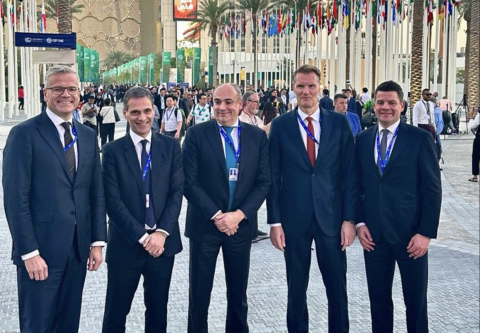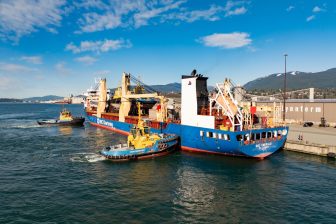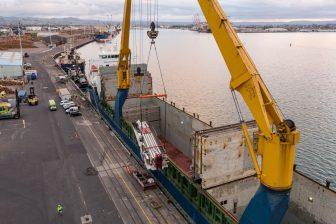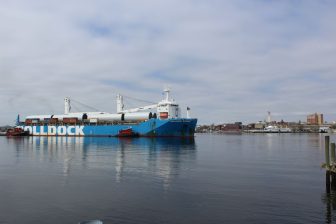
Shipping CEOs call for accelerated maritime transport decarbonisation
CEOs of the shipping majors have joined forces in advocating for an end date for fossil-only powered newbuilds and urging the International Maritime Organization (IMO), the global regulator, to create the regulatory conditions to accelerate the transition to green fuels.
The CEOs of A.P. Moller – Maersk, CMA CGM Group, Hapag-Lloyd, MSC Mediterranean Shipping Company and Wallenius Wilhelmsen have all signed a joint declaration at COP 28.
“Global temperatures are breaching critical levels, creating more frequent and devasting results. Therefore, the importance of shipping achieving IMO’s 2030, 2040, and net-zero 2050 greenhouse gas (GHG) targets is very clear. The only realistic way to meet those targets for an industry that accounts for 2-3 per cent of global GHG emissions is to transition from fossil to green fuels at scale and at pace,” the CEOs said in a joint statement.
Their joint declaration calls for the establishment of four regulatory “cornerstones”, such as an end date for new building of fossil fuel-only vessels and a clear GHG Intensity Standard timeline to inspire investment confidence, both for new ships and the fuel supply infrastructure needed to accelerate the energy transition.
An effective GHG pricing mechanism to make green fuel competitive with black fuel during the transition phase when both are used. This can be done by distributing the premium for the green fuels across all the fossil fuel used. With low initial volumes of green fuels any inflationary effects are minimized. The mechanism must also feature an increasing regulatory incentive to achieve deeper emissions reductions. Furthermore, beyond covering the ‘green balance fee’, revenue generated by the mechanism should go to an RD&D fund and to investments in developing countries to ensure a just transition that leaves no one behind.
CEOs are also calling for a vessel pooling option for GHG regulatory compliance where the performance of a group of vessels could count instead of only that of individual ships, ensuring investments are made where they achieve the greatest GHG reduction and thereby accelerating decarbonization across the global fleet.
Furthermore, CEOs are calling for a Well-to-Wake or lifecycle GHG regulatory basis to align investment decisions with climate interests and mitigate the risk of stranded assets.
In an unprecedented action, major players of the shipping industry express their shared conviction that regulation can play a key role in mitigating the cost of the green transition as well as the risk of extreme weather events. Given the cost of climate change is far greater than the cost of the green transition they look forward to being joined by other companies.
Rolf Habben Jansen, Chief Executive Officer of Hapag-Lloyd, said, “Our collective responsibility for a sustainable future and clean practices is paramount. At Hapag-Lloyd, we reaffirm our commitment to advance the decarbonisation of the maritime industry and strive to be at the forefront of the energy transition. We believe that a regulatory framework and clear targets are crucial to accelerating the introduction of alternative fuels and reducing our carbon footprint. This commitment is in line with Hapag-Lloyd’s goal of achieving a net-zero carbon fleet by 2045 and reflects our industry’s unwavering commitment to environmental responsibility.”
You just read one of our premium articles free of charge
Register now to keep reading premium articles.




